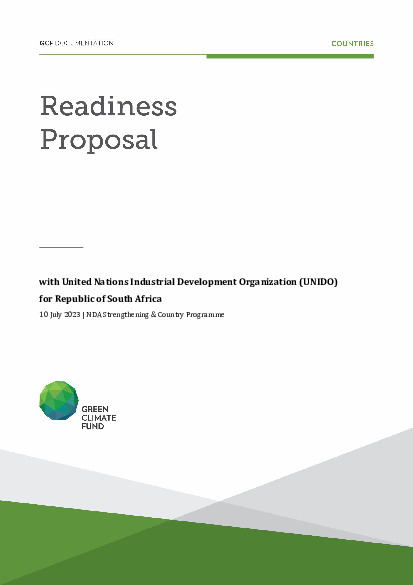Enhancing the institutional capacity of South Africa to coordinate green hydrogen activities of the Hydrogen Society Roadmap

Enhancing the institutional capacity of South Africa to coordinate green hydrogen activities of the Hydrogen Society Roadmap
South Africa’s energy sector CO2 emisssions rose from 451.58 million mt in 2015 to 478.61 million mt in 2019, making it the 12th largest CO2 emitting nation. Energy emissions accounted for 80% of South Africa’s emissions in 2017. South Africa’s electricity mix remains dominated by coal-fired power generation, which contributed to 83.5% to system demand in 2020, followed by renewables (5.5%) and nuclear (5.2%). At same time, natural disasters in South Africa (e.g. droughts, floods, storms) have led to significant social and economic losses, which is anticipated to exacerbate as consequence of climate change. During the period of 1900-2017, above 100 disaster events were reported, resulting in 2200 death as well as 21 million affected and totaling roughly US$4.5 billion monetary loss. There is a notable need to support South Africa to achieve a low-carbon energy transition and achieve national climate change targets.
In response to the climate threats facing South Africa, this proposal aims to reduce South Africa dependence on fossil fuels, by the increasing the production of green hydrogen, which is derived from the electrolysis of water using renewable power, that can be used in South Africa to decarbonizing energy-intensive hard-to-abate industries such as iron, steel and chemicals.
The country has established a number of climate-responsive developing planning and launched the Hydrogen Society Roadmap (HSRM), which maintains a vision to leverage the renewable resources of South Africa to stimulate local demand and application for green hydrogen. Adoption of green hydrogen additionally demonstrates a strong alignment with the NDCs, Climate Change Bill, Low Emissions Development Strategy, South African Renewable Energy Masterplan and various sectoral policies, by providing an opportunity to replace the usage of coal with renewables and drive the clean energy transition. Ongoing green hydrogen initiatives and pilot projects such as the Platinum Valley Initiative, Boegoebaai Special Economic Zone, have established a baseline from which cooperation and partnership opportunities of green hydrogen developments could be advanced in South Africa.